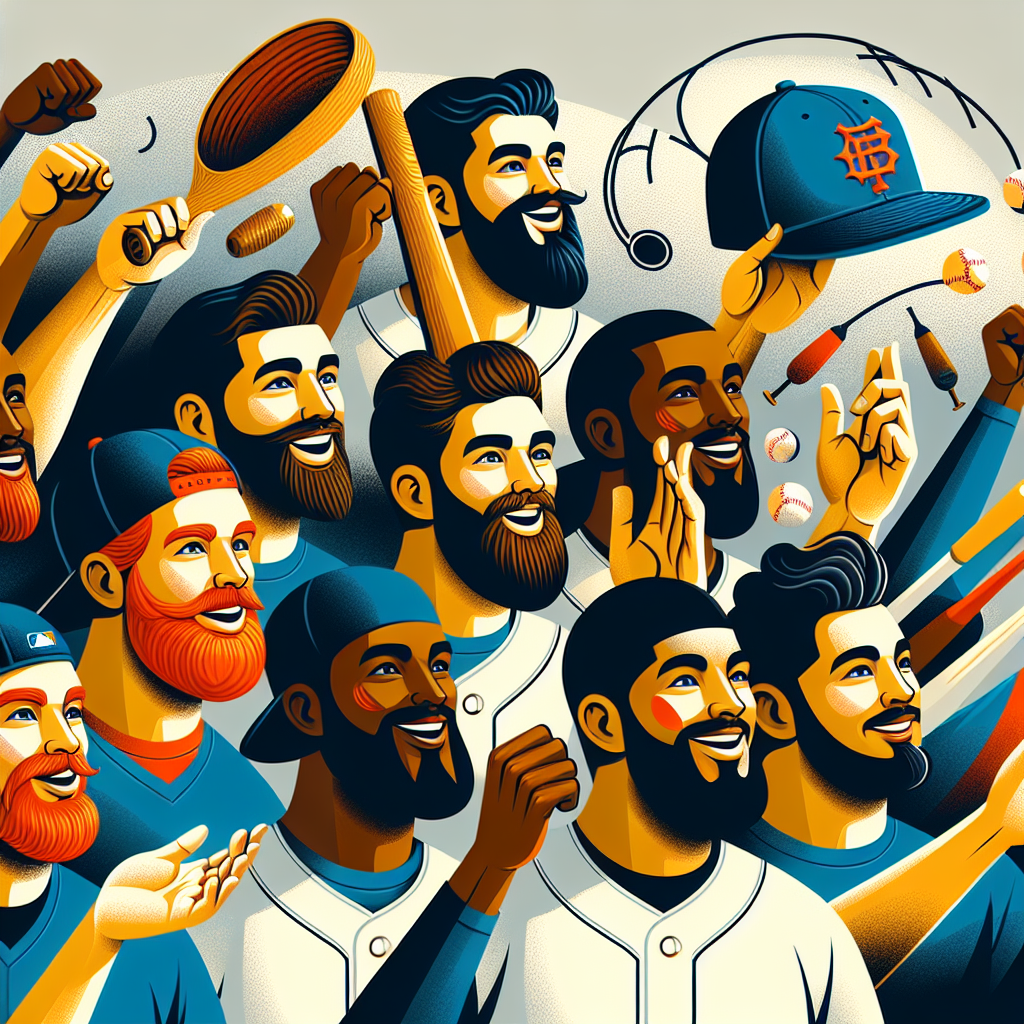The concert ticketing system has become a contentious issue, particularly highlighted by the experiences of fans like Jacki Thrapp. A Nashville resident, Thrapp found it more economical to fly to Europe to attend a Taylor Swift concert than to purchase tickets for the US shows, where resale prices soared to $2,500, far exceeding the original price of $49. This situation reflects a broader trend where American fans, especially those in their 20s and 30s, struggle to afford concert tickets, prompting some to seek more affordable options abroad.
In Europe, ticket resale regulations differ significantly from those in the US and UK. For instance, in Sweden, the markup on resale tickets is generally limited, resulting in prices that are often only double the original value. Other countries, such as Germany, Italy, and Portugal, have laws that restrict resale prices to prevent excessive markups. In contrast, the US and UK markets allow prices to escalate based on demand, leading to accusations of “predatory resellers” and a system that many artists deem “broken.” This has prompted calls for reform, including proposals from the Labour Party in the UK to cap resale prices.
Despite potential legislative changes, the issues of ticket scalping and counterfeit tickets remain prevalent. Many fans, including those attempting to purchase tickets for Taylor Swift’s UK concerts, have fallen victim to scams. Asher Weiss, CEO of the ticketing startup Tixologi, suggests that technology, particularly artificial intelligence (AI), could address these challenges. Tixologi’s AI system aims to identify unusual purchasing patterns, such as multiple ticket purchases from the same IP address, which could help prevent scalpers from acquiring large quantities of tickets.
Additionally, Tixologi employs blockchain technology to ensure that each ticket is unique and cannot be duplicated. Their electronic tickets feature a rotating QR code, making it difficult for counterfeit tickets to pass verification. This system also allows artists and venues to disable ticket transfers, further complicating resale efforts. Similarly, UK company Seat Unique is implementing dynamic pricing strategies, allowing ticket prices to fluctuate based on demand, thereby ensuring that artists and venues benefit directly from increased interest.
As AI continues to evolve, it is not only transforming ticket purchasing but also the concert experience itself. Upcoming performances, such as an AI-powered hologram of Elvis Presley, showcase the potential of technology in the entertainment industry. However, fans like Jacki Thrapp remain hopeful for a more equitable ticketing system. While advancements in AI offer promising solutions, the effectiveness of these innovations in creating a fairer experience for concertgoers is yet to be fully realized.
Original news source: Can technology fix the ‘broken’ concert ticketing system? (BBC)
🎧 Listen:
Slow
Normal
Fast
📖 Vocabulary:
| 1 | contentious | Likely to cause disagreement or argument |
| 2 | economical | Cost-effective or saving money |
| 3 | soared | Increased rapidly to a high level |
| 4 | regulations | Rules or directives made and maintained by an authority |
| 5 | markup | An increase in price or value |
| 6 | escalate | To increase or rise, especially suddenly or rapidly |
| 7 | accusations | Claims or assertions that someone has done something illegal or wrong |
| 8 | legislative | Relating to laws or the process of making laws |
| 9 | prevalent | Widespread or commonly occurring |
| 10 | scams | Fraudulent schemes or tricks |
| 11 | counterfeit | Made in exact imitation of something valuable with the intention to deceive |
| 12 | blockchain | A system that records transactions across several computers so that the record cannot be altered retroactively |
| 13 | verification | The process of establishing the truth, accuracy, or validity of something |
| 14 | fluctuate | To change or vary, especially continuously and often |
| 15 | equitable | Fair and impartial |
Group or Classroom Activities
Warm-up Activities:
– CHARADES
Instructions: Students will act out different terms related to the article, such as “ticket scalping,” “AI technology,” “concert experience,” and “resale prices.” The rest of the class will guess the term being acted out.
– OPINION POLL
Instructions: Students will form small groups and discuss their opinions on the fairness of ticket pricing for concerts. Each group will summarize their findings and share with the class, allowing for a broader discussion on the topic.
– FUTURE PREDICTIONS
Instructions: Students will work in pairs to predict how concert ticketing systems might evolve in the next 5-10 years. They should consider factors such as technology, consumer behavior, and potential legislative changes. Each pair will share their predictions with the class.
– MIND MAP
Instructions: On a large sheet of paper or a whiteboard, students will create a mind map that explores the various issues raised in the article, such as ticket pricing, technology in ticketing, and consumer experiences. This will help visualize the interconnected concepts discussed.
– HEADLINE CREATION
Instructions: Students will create catchy headlines that summarize the key points of the article. They can work in pairs or small groups, and then present their headlines to the class, explaining their reasoning behind the chosen words.
🤔 Comprehension Questions:
1. What experience did Jacki Thrapp have that highlighted the issues with the concert ticketing system?
2. How do ticket resale regulations in Europe differ from those in the US and UK?
3. What are some of the measures taken by countries like Germany, Italy, and Portugal regarding ticket resale prices?
4. What problems have fans encountered when trying to purchase tickets for Taylor Swift’s UK concerts?
5. How does Tixologi’s AI system aim to combat ticket scalping?
6. What technology does Tixologi use to ensure that each ticket is unique and to prevent counterfeiting?
7. How is dynamic pricing being implemented by the UK company Seat Unique, and what is its intended effect?
8. In what ways is AI changing not just ticket purchasing, but also the overall concert experience?
Go to answers ⇩
🎧✍️ Listen and Fill in the Gaps:
The concert ticketing system has become a contentious (1)______, particularly highlighted by the experiences of fans like Jacki Thrapp. A (2)______ resident, Thrapp found it more economical to fly to Europe to attend a Taylor Swift concert than to purchase tickets for the US shows, where resale prices soared to $2,500, far exceeding the original price of $49. This situation reflects a (3)______ trend where American fans, especially those in their 20s and 30s, (4)______ to afford concert tickets, prompting some to seek more affordable options abroad.
In Europe, ticket resale regulations differ significantly from those in the US and UK. For instance, in Sweden, the markup on resale tickets is generally limited, resulting in prices that are often only double the original value. Other countries, such as Germany, Italy, and Portugal, have laws that restrict resale prices to prevent excessive markups. In contrast, the US and UK markets allow prices to escalate based on demand, (5)______ to accusations of “predatory resellers” and a system that many artists deem “broken.” This has prompted calls for (6)______, including proposals from the (7)______ Party in the UK to cap resale prices.
Despite potential legislative changes, the issues of ticket scalping and counterfeit tickets remain prevalent. Many fans, including those attempting to (8)______ tickets for Taylor Swift’s UK concerts, have fallen victim to scams. Asher Weiss, CEO of the (9)______ing startup Tixologi, suggests that technology, particularly artificial intelligence (AI), could address these (10)______. Tixologi’s AI system aims to identify unusual purchasing patterns, such as multiple ticket purchases from the same IP address, which could help prevent scalpers from acquiring large (11)______ of tickets.
Additionally, Tixologi employs blockchain technology to (12)______ that each ticket is unique and cannot be duplicated. Their electronic tickets feature a rotating QR code, making it difficult for counterfeit tickets to pass verification. This system also allows artists and venues to disable ticket transfers, further complicating resale efforts. Similarly, UK company Seat Unique is implementing dynamic pricing strategies, allowing ticket prices to fluctuate based on demand, thereby (13)______ that (14)______ and venues benefit directly from increased interest.
As AI continues to evolve, it is not only transforming ticket purchasing but also the concert (15)______ itself. Upcoming performances, such as an AI-powered hologram of Elvis Presley, (16)______ the potential of technology in the entertainment industry. However, fans like Jacki Thrapp remain hopeful for a more equitable ticketing system. While advancements in AI offer promising solutions, the effectiveness of these innovations in creating a fairer experience for concertgoers is yet to be fully realized.
Go to answers ⇩
💬 Discussion Questions:
Students can ask a partner these questions, or discuss them as a group.
1. What is your opinion on the current state of concert ticket pricing in your country?
2. How would you feel if you had to travel abroad to see your favorite artist perform due to high ticket prices at home?
3. Do you think there should be regulations on ticket resale prices? Why or why not?
4. Have you ever experienced difficulties when trying to purchase tickets for a concert? What happened?
5. What is a fair price for a concert ticket in your view?
6. How do you think technology, like AI, can improve the ticket purchasing process?
7. Do you think artists should take a stand against ticket scalping? Why or why not?
8. How would you react if you found out that a ticket you purchased was counterfeit?
9. Do you like the idea of dynamic pricing for concert tickets? Why or why not?
10. What is your experience with attending concerts in different countries? Did you notice any differences in ticket prices?
11. Do you believe that the concert experience is worth the high ticket prices? Why or why not?
12. How do you think the rise of virtual concerts and technology will impact traditional live performances?
13. What is a memorable concert experience you have had, and how did the ticket pricing affect that experience?
14. Do you think fans should have more influence on ticket pricing policies? Why or why not?
15. How would you feel if your favorite artist started using AI technology in their performances? Would you embrace it or prefer traditional methods? Why?
Individual Activities
📖💭 Vocabulary Meanings:
Match each word to its meaning.
Words:
1. contentious
2. economical
3. soared
4. regulations
5. markup
6. escalate
7. accusations
8. legislative
9. prevalent
10. scams
11. counterfeit
12. blockchain
13. verification
14. fluctuate
15. equitable
Meanings:
(A) Claims or assertions that someone has done something illegal or wrong
(B) Rules or directives made and maintained by an authority
(C) A system that records transactions across several computers so that the record cannot be altered retroactively
(D) Fraudulent schemes or tricks
(E) Made in exact imitation of something valuable with the intention to deceive
(F) Likely to cause disagreement or argument
(G) To change or vary, especially continuously and often
(H) To increase or rise, especially suddenly or rapidly
(I) The process of establishing the truth, accuracy, or validity of something
(J) An increase in price or value
(K) Widespread or commonly occurring
(L) Cost-effective or saving money
(M) Relating to laws or the process of making laws
(N) Fair and impartial
(O) Increased rapidly to a high level
Go to answers ⇩
🔡 Multiple Choice Questions:
1. What did Jacki Thrapp find more economical than purchasing tickets for US shows?
(a) Flying to Europe
(b) Buying tickets from scalpers
(c) Attending local concerts
(d) Waiting for a discount
2. What is the original price of the Taylor Swift concert tickets mentioned in the article?
(a) $100
(b) $250
(c) $500
(d) $49
3. In which country is the markup on resale tickets generally limited, according to the article?
(a) Germany
(b) Italy
(c) Sweden
(d) Portugal
4. What technology does Tixologi use to help prevent scalpers from acquiring large quantities of tickets?
(a) Virtual reality (VR)
(b) Artificial intelligence (AI)
(c) Social media analysis
(d) Big data analytics
5. What feature do Tixologi’s electronic tickets have to prevent counterfeiting?
(a) A rotating QR code
(b) A holographic image
(c) A magnetic strip
(d) A barcode
6. What is one of the proposed solutions from the Labour Party in the UK regarding concert ticket prices?
(a) Increasing original ticket prices
(b) Capping resale prices
(c) Allowing unlimited resale
(d) Eliminating ticket sales altogether
7. What does the article suggest about the current state of ticket scalping and counterfeit tickets?
(a) They have been completely resolved
(b) They are only an issue in Europe
(c) They are not a concern for artists
(d) They remain prevalent
8. What type of performance is mentioned as an example of AI’s potential in the entertainment industry?
(a) A live concert with holographic effects
(b) A virtual reality concert experience
(c) An AI-powered hologram of Elvis Presley
(d) An AI-generated music festival
Go to answers ⇩
🕵️ True or False Questions:
1. In Sweden, the markup on resale tickets is generally limited, resulting in prices that are often only double the original value.
2. American fans, particularly those in their 20s and 30s, are increasingly struggling to afford concert tickets.
3. Tixologi uses blockchain technology to produce unique electronic tickets that are challenging to replicate and include rotating QR codes for verification.
4. The UK company Seat Unique is utilizing fixed pricing strategies to enable ticket prices to remain stable based on demand, benefiting artists and venues.
5. Some European countries, such as Germany, Italy, and Portugal, have laws in place to regulate resale prices and prevent excessive markups.
6. Jacki Thrapp, a Nashville resident, found it more expensive to fly to Europe for a Taylor Swift concert than to buy tickets for US shows due to high resale prices.
7. The ticketing startup Tixologi uses artificial intelligence to identify unusual purchasing patterns to combat ticket scalping.
8. Resale prices for concert tickets in the US can exceed the original price significantly, with some tickets reaching $2,500 compared to an original price of $49.
Go to answers ⇩
📝 Write a Summary:
Write a summary of this news article in two sentences.
Check your writing now with the best free AI for English writing!
Writing Questions:
Answer the following questions. Write as much as you can for each answer.
Check your answers with our free English writing assistant!
1. What are the main reasons American fans are choosing to attend concerts in Europe instead of the US?
2. How do ticket resale regulations in European countries differ from those in the US and UK?
3. What technological solutions does Tixologi propose to combat ticket scalping and counterfeit tickets?
4. How might dynamic pricing strategies benefit artists and venues in the concert ticketing market?
5. What are the hopes of fans like Jacki Thrapp regarding the future of the ticketing system?
✅ Answers
🤔✅ Comprehension Question Answers:
1. What experience did Jacki Thrapp have that highlighted the issues with the concert ticketing system?
Jacki Thrapp found it more economical to fly to Europe to attend a Taylor Swift concert than to purchase tickets for the US shows, where resale prices soared to $2,500, far exceeding the original price of $49.
2. How do ticket resale regulations in Europe differ from those in the US and UK?
In Europe, ticket resale regulations often limit the markup on resale tickets, resulting in prices that are typically only double the original value, whereas the US and UK markets allow prices to escalate based on demand.
3. What are some of the measures taken by countries like Germany, Italy, and Portugal regarding ticket resale prices?
Countries like Germany, Italy, and Portugal have laws that restrict resale prices to prevent excessive markups.
4. What problems have fans encountered when trying to purchase tickets for Taylor Swift’s UK concerts?
Many fans have fallen victim to scams while attempting to purchase tickets for Taylor Swift’s UK concerts.
5. How does Tixologi’s AI system aim to combat ticket scalping?
Tixologi’s AI system aims to identify unusual purchasing patterns, such as multiple ticket purchases from the same IP address, which could help prevent scalpers from acquiring large quantities of tickets.
6. What technology does Tixologi use to ensure that each ticket is unique and to prevent counterfeiting?
Tixologi employs blockchain technology to ensure that each ticket is unique and cannot be duplicated, along with electronic tickets featuring a rotating QR code to make counterfeiting difficult.
7. How is dynamic pricing being implemented by the UK company Seat Unique, and what is its intended effect?
Seat Unique is implementing dynamic pricing strategies that allow ticket prices to fluctuate based on demand, ensuring that artists and venues benefit directly from increased interest.
8. In what ways is AI changing not just ticket purchasing, but also the overall concert experience?
AI is not only transforming ticket purchasing but also enhancing the concert experience, as seen in upcoming performances like an AI-powered hologram of Elvis Presley, showcasing technology’s potential in the entertainment industry.
Go back to questions ⇧
🎧✍️✅ Listen and Fill in the Gaps Answers:
(1) issue
(2) Nashville
(3) broader
(4) struggle
(5) leading
(6) reform
(7) Labour
(8) purchase
(9) ticket
(10) challenges
(11) quantities
(12) ensure
(13) ensuring
(14) artists
(15) experience
(16) showcase
Go back to questions ⇧
📖💭✅ Vocabulary Meanings Answers:
1. contentious
Answer: (F) Likely to cause disagreement or argument
2. economical
Answer: (L) Cost-effective or saving money
3. soared
Answer: (O) Increased rapidly to a high level
4. regulations
Answer: (B) Rules or directives made and maintained by an authority
5. markup
Answer: (J) An increase in price or value
6. escalate
Answer: (H) To increase or rise, especially suddenly or rapidly
7. accusations
Answer: (A) Claims or assertions that someone has done something illegal or wrong
8. legislative
Answer: (M) Relating to laws or the process of making laws
9. prevalent
Answer: (K) Widespread or commonly occurring
10. scams
Answer: (D) Fraudulent schemes or tricks
11. counterfeit
Answer: (E) Made in exact imitation of something valuable with the intention to deceive
12. blockchain
Answer: (C) A system that records transactions across several computers so that the record cannot be altered retroactively
13. verification
Answer: (I) The process of establishing the truth, accuracy, or validity of something
14. fluctuate
Answer: (G) To change or vary, especially continuously and often
15. equitable
Answer: (N) Fair and impartial
Go back to questions ⇧
🔡✅ Multiple Choice Answers:
1. What did Jacki Thrapp find more economical than purchasing tickets for US shows?
Answer: (a) Flying to Europe
2. What is the original price of the Taylor Swift concert tickets mentioned in the article?
Answer: (d) $49
3. In which country is the markup on resale tickets generally limited, according to the article?
Answer: (c) Sweden
4. What technology does Tixologi use to help prevent scalpers from acquiring large quantities of tickets?
Answer: (b) Artificial intelligence (AI)
5. What feature do Tixologi’s electronic tickets have to prevent counterfeiting?
Answer: (a) A rotating QR code
6. What is one of the proposed solutions from the Labour Party in the UK regarding concert ticket prices?
Answer: (b) Capping resale prices
7. What does the article suggest about the current state of ticket scalping and counterfeit tickets?
Answer: (d) They remain prevalent
8. What type of performance is mentioned as an example of AI’s potential in the entertainment industry?
Answer: (c) An AI-powered hologram of Elvis Presley
Go back to questions ⇧
🕵️✅ True or False Answers:
1. In Sweden, the markup on resale tickets is generally limited, resulting in prices that are often only double the original value. (Answer: True)
2. American fans, particularly those in their 20s and 30s, are increasingly struggling to afford concert tickets. (Answer: True)
3. Tixologi uses blockchain technology to produce unique electronic tickets that are challenging to replicate and include rotating QR codes for verification. (Answer: False)
4. The UK company Seat Unique is utilizing fixed pricing strategies to enable ticket prices to remain stable based on demand, benefiting artists and venues. (Answer: False)
5. Some European countries, such as Germany, Italy, and Portugal, have laws in place to regulate resale prices and prevent excessive markups. (Answer: False)
6. Jacki Thrapp, a Nashville resident, found it more expensive to fly to Europe for a Taylor Swift concert than to buy tickets for US shows due to high resale prices. (Answer: False)
7. The ticketing startup Tixologi uses artificial intelligence to identify unusual purchasing patterns to combat ticket scalping. (Answer: True)
8. Resale prices for concert tickets in the US can exceed the original price significantly, with some tickets reaching $2,500 compared to an original price of $49. (Answer: True)
Go back to questions ⇧















